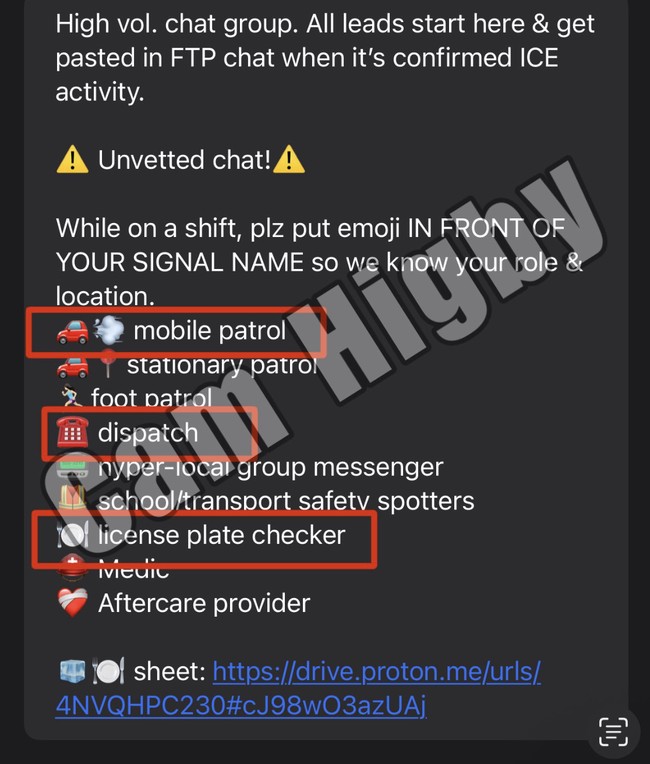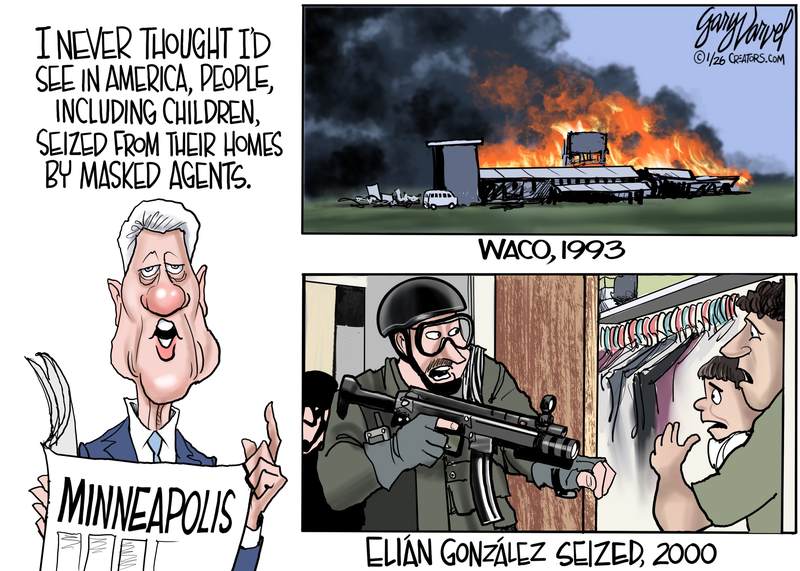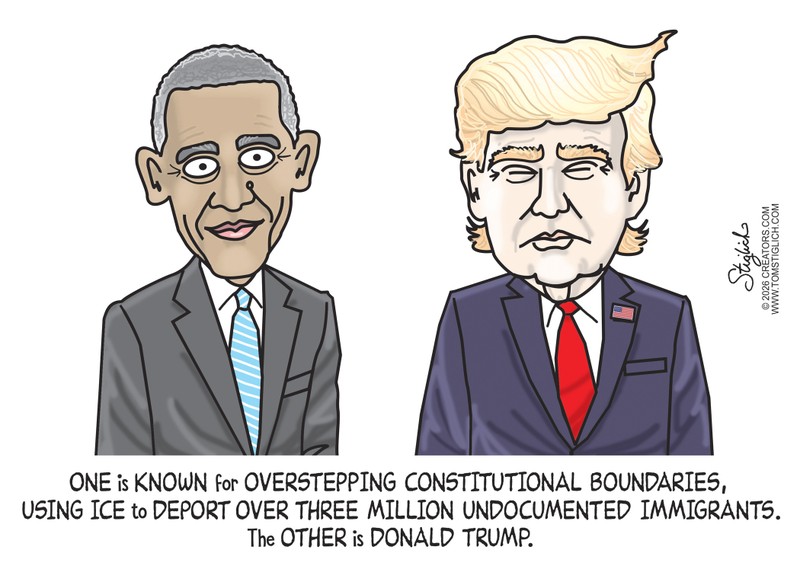Anti-ICE Signal Chats: Walz Administration Implicated, Foreign Funding Revealed
We’re learning a lot more about the people who were in the anti-ICE Signal chat groups that independent journalist Cam Higby infiltrated in Minnesota, the organization of the group, its donors, and the significance of the address at which Alex Pretti was obstructing federal officers. There’s far too much information to detail completely in this piece, but even just from an overview, it’s clear that there is an organized insurrection underway, led by several elected officials in Minnesota and aided by alleged journalists.
Let’s hit the highlights:
Organization
The groups are highly sophisticated. They’re set up geographically; within the City of Minneapolis, they’re generally divided by City Council district, but also cover St. Paul, Bloomington, and other suburbs. They start a new chat every day and delete the prior day’s chat. Because of Signal’s encryption, it would be exceedingly difficult for the deleted messages to be recovered unless, say, participants were recording those messages prior to deletion. Signal also has a “no screenshots” function, which undoubtedly was enabled on these chats, so the messages would have to be recorded the way Higby did – by recording using a separate phone.
They have a set of emojis that each user puts around their name when they’re on shift, to indicate what position they’re working that shift. For example:

Funding
On Sunday evening, Data Republican published a spreadsheet of 4000+ donors to the effort and their possible identities, and made that publicly downloadable. She also sent a non-redacted spreadsheet to the FBI and other federal authorities.
The first donation to the effort was made by Jonny Soppotiuk, a Canadian who helps run the crowdfunding site, Chuffed, which hosts the fundraiser.
She wrote:
BREAKING: SIGNALGATE DONORS LIST AVAILABLE FOR DOWNLOAD; POLITICIANS + FOREIGN LEADERSHIP CONFIRMED?
In one of the files revealed by @camhigby, a resources file directs people with money to a website, Stand with Minnesota, which in turns directs donors to a campaign ran by Tending the Soil on Chuffed.
More about Tending the Soil later. What to know: the campaign is hosted by Chuffed and the first donation came from Jonny Soppotiuk, a Canada-based community organizer who is part of Chuffed leadership and specializes in fundraising. He is most likely a central figure in raising money.
So, yeah. Starting to look like foreigners are playing a key role in all of this.
That’s not all. I’ve put together a spreadsheet of 4000+ donors and their possible identities.
Politicians & Journalists
Even bigger: The names of the people involved. As Streiff wrote in an excellent piece on Sunday, “It is obvious that a non-trivial number of judges and elected officials are affiliated with the current insurrection.”
Not surprisingly, Alex Pretti, the man who was killed Saturday, was a member of the group; one of his neighbors confirmed that. And, so was Renee Good.
Then we have some Minneapolis elected officials.
Rep. Brad Tabke
Minnesota state Rep. Brad Tabke coordinates the Scott County ICE Watch Signal chat. Scott County is just outside Minneapolis.
This is not some vague third-party thing. This is Rep. Brad Tabke himself running/organizing/coordinating the Scott County ICE Watch program, including recruiting people for patrol, dispatch, training, and even food receiving/packing/delivery shifts at the New Creation Church location in Shakopee.
Minnesota state Rep. Alex Falconer
In a campaign stop, Falconer both admitted that he’s part of the chat and recruited participants. He said, in part:
I’m a community organizer at heart, and that’s part of what I’m trying to bring to the table.
I’m helping to lead the community response, rapid response network that we have, given any ICE situations…
We’ve got a couple of groups on the app Signal that we would love for you to join.
We know that Tabke was involved because people who signed up for that chat received a welcome message from him containing his personal cell phone number, and, obviously, Falconer admitted his role. For the rest of the people mentioned in this article, their involvement is not 100 percent confirmed; for many, their involvement is presumed because of the username in the chat and leadership position, but a definitive determination would need to be made by law enforcement or their own admission.
Aurin Chowdhury
One username is Aurin Chowdhury. An admin with the same name is on the Minneapolis City Council, representing Ward 12.
Prior to her post announcing Pretti’s shooting, the last thing Chowdhury posted was a video of a local pizzeria owner refusing to serve federal agents.
MPR’s Ben Hovland, NPR’s Sergio Martinez-Beltrán
Ben Hovland, with Minnesota Public Radio (shocker) seems to be part of the group. He covers immigration for the formerly publicly-funded outlet, and his profession is listed in the group chat. He has now locked his X profile. NPR’s Sergio Martinez-Beltrán is also listed as a participant, and his profession is also listed with his contact.
Hovland just happened to be “on-scene covering” the “protests” when Renee Good was shot.
Amanda Koehler, former Walz staffer, MN State Senate candidate Anita Smithson, and Minneapolis politician David Snyder were all listed, with Koehler and Smithson serving as admins and Snyder as a dispatcher.
Lt. Gov Peggy Flanagan (?)
This is the biggest name of all. An independent journalist working with Higby to determine the identities of the anti-ICE signal chat participants believes that Minnesota Lt. Gov. Peggy Flanagan is an admin in the chat going by the username Flan Southside.
Despite the Irish last name, which is her mother’s, Flanagan is the first female Native American to serve in that position. She is a member of the White Earth Band of Ojibwe.
As of a few hours ago, Higby stated that he’s not 100 percent certain that the username belongs to Flanagan, but there’s a bit of circumstantial evidence showing that might just be her:
Regardless, Flanagan is involved in stirring up local activists. She recently instructed leftists to put their bodies on the line to protest.
It’s clear that Walz, Frey, and Flanagan want this insurrection to continue because it takes the focus off the massive fraud that’s been occurring in that state, much of it with Walz’s knowledge. Related to that, it’s interesting that the address where the shooting occurred, 2614 Nicollet, an 1100 square foot building that’s home to eight businesses: Smart Therapy Center, New American Development Center, Nicollet Senior Center, United Wellness Center, African American Family Services, Millenium Health Services, Bloom Home Health, and Global Interpreting Innovations.
Do you notice a common theme with those businesses?
Continue reading “”










